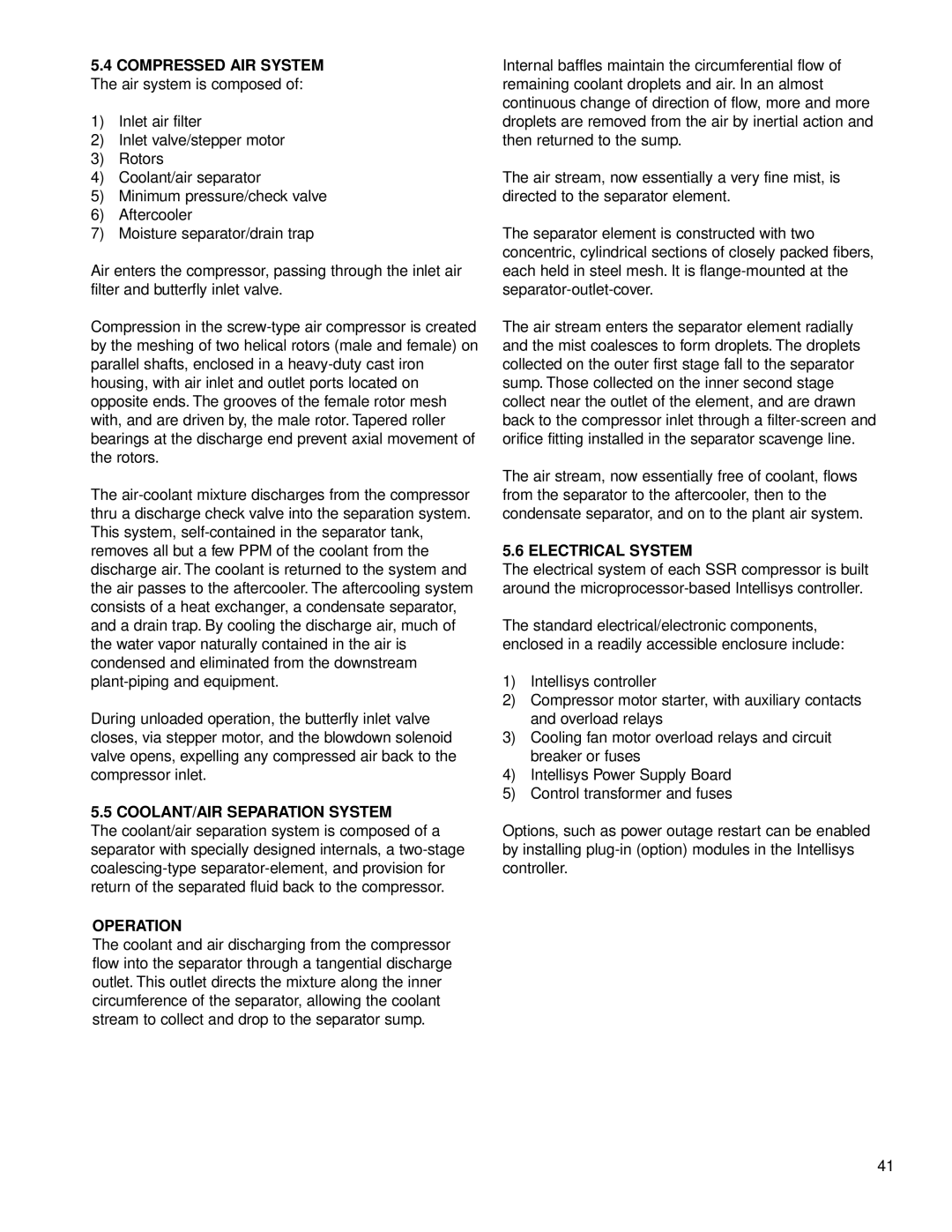5.4COMPRESSED AIR SYSTEM The air system is composed of:
1)Inlet air filter
2)Inlet valve/stepper motor
3)Rotors
4)Coolant/air separator
5)Minimum pressure/check valve
6)Aftercooler
7)Moisture separator/drain trap
Air enters the compressor, passing through the inlet air filter and butterfly inlet valve.
Compression in the
The
During unloaded operation, the butterfly inlet valve closes, via stepper motor, and the blowdown solenoid valve opens, expelling any compressed air back to the compressor inlet.
5.5 COOLANT/AIR SEPARATION SYSTEM
The coolant/air separation system is composed of a separator with specially designed internals, a
OPERATION
The coolant and air discharging from the compressor flow into the separator through a tangential discharge outlet. This outlet directs the mixture along the inner circumference of the separator, allowing the coolant stream to collect and drop to the separator sump.
Internal baffles maintain the circumferential flow of remaining coolant droplets and air. In an almost continuous change of direction of flow, more and more droplets are removed from the air by inertial action and then returned to the sump.
The air stream, now essentially a very fine mist, is directed to the separator element.
The separator element is constructed with two concentric, cylindrical sections of closely packed fibers, each held in steel mesh. It is
The air stream enters the separator element radially and the mist coalesces to form droplets. The droplets collected on the outer first stage fall to the separator sump. Those collected on the inner second stage collect near the outlet of the element, and are drawn back to the compressor inlet through a
The air stream, now essentially free of coolant, flows from the separator to the aftercooler, then to the condensate separator, and on to the plant air system.
5.6 ELECTRICAL SYSTEM
The electrical system of each SSR compressor is built around the
The standard electrical/electronic components, enclosed in a readily accessible enclosure include:
1)IntelIisys controller
2)Compressor motor starter, with auxiliary contacts and overload relays
3)Cooling fan motor overload relays and circuit breaker or fuses
4)Intellisys Power Supply Board
5)Control transformer and fuses
Options, such as power outage restart can be enabled by installing
41
